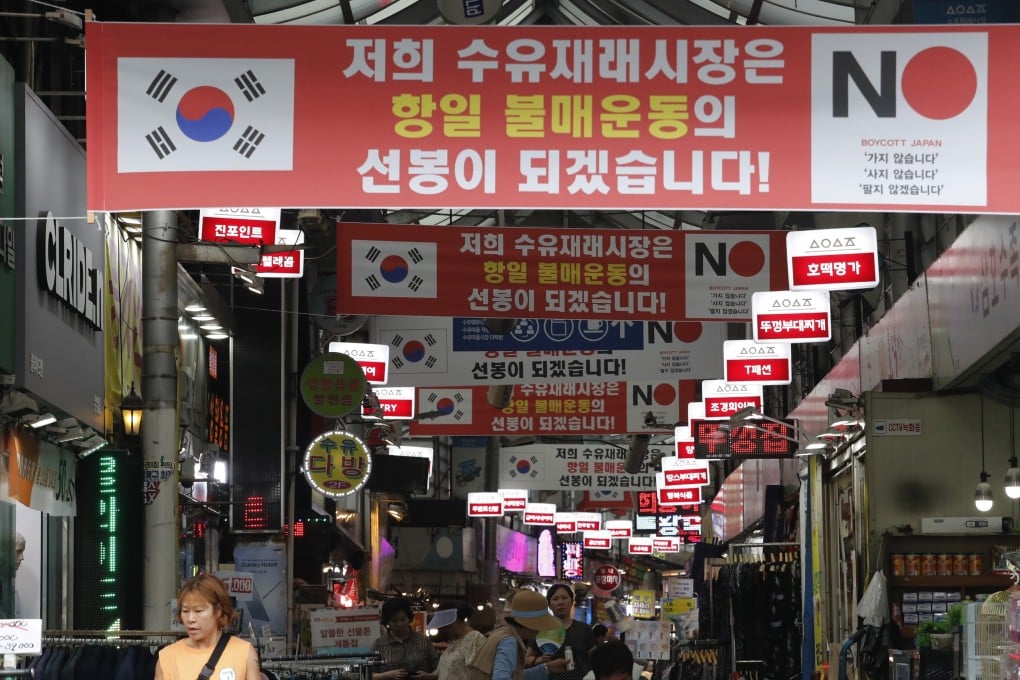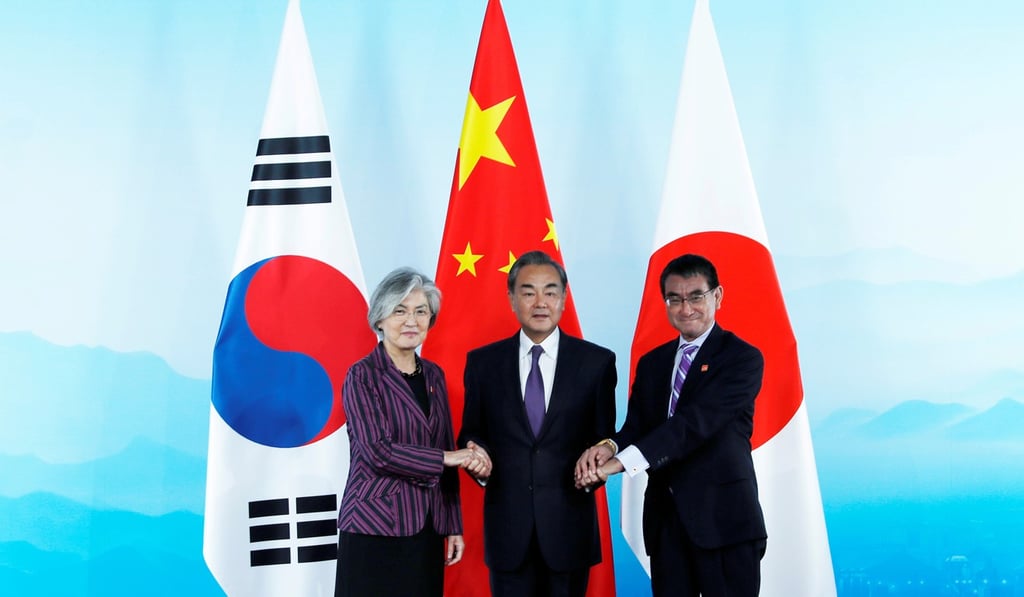South Korean asset firm cashes in on anti-Japan anger with patriotic equity fund
- A Seoul-based asset manager has launched a Korean equity fund which invests in local suppliers that may benefit from Japan’s trade restrictions
- Even if the trade conflict eases, the fund believes the government and companies will continue to develop local industries, which will eventually boost their earnings growth

The firm sees rising public angst in South Korea over the trade curbs and said it will donate part of the investment fees to the local institutes that develop the industries affected.

“Considering Japan’s export curb is becoming a threat to industries but also to national security, even if the conflicts between two countries are eased, the South Korean government and companies will continue to develop local industries for parts, materials and equipment,” said Heeseok Jung, manager for the fund that is so far been allocated about US$24 million since its inception on August 14.
Jung believes more Korean firms will increasingly use products made by local suppliers that have been competing with overseas makers, which will eventually boost their potential earnings growth.